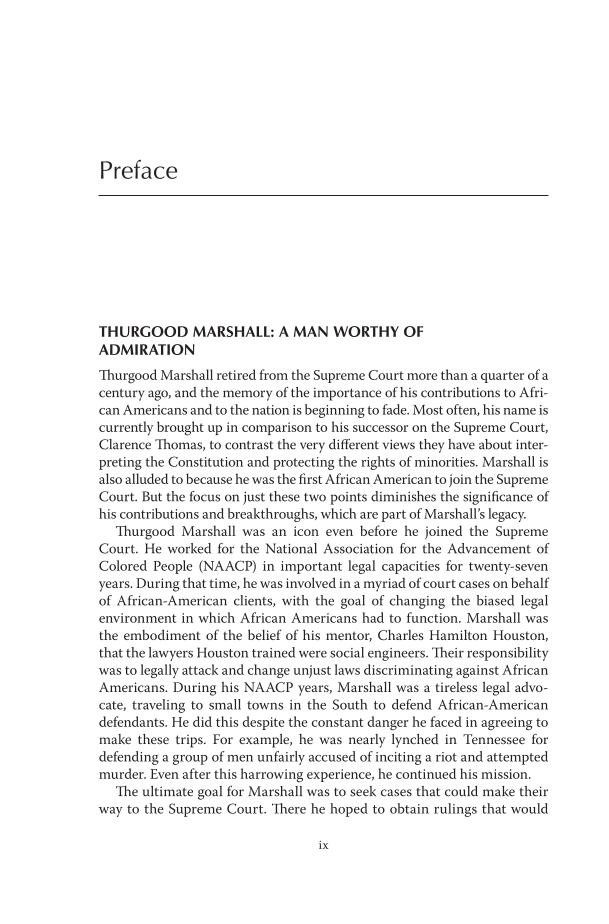ix Preface THURGOOD MARSHALL: A MAN WORTHY OF ADMIRATION Thurgood Marshall retired from the Supreme Court more than a quarter of a century ago, and the memory of the importance of his contributions to Afri- can Americans and to the nation is beginning to fade. Most often, his name is currently brought up in comparison to his successor on the Supreme Court, Clarence Thomas, to contrast the very different views they have about inter- preting the Constitution and protecting the rights of minorities. Marshall is also alluded to because he was the first African American to join the Supreme Court. But the focus on just these two points diminishes the significance of his contributions and breakthroughs, which are part of Marshall’s legacy. Thurgood Marshall was an icon even before he joined the Supreme Court. He worked for the National Association for the Advancement of Colored People (NAACP) in important legal capacities for twenty-seven years. During that time, he was involved in a myriad of court cases on behalf of African-American clients, with the goal of changing the biased legal environment in which African Americans had to function. Marshall was the embodiment of the belief of his mentor, Charles Hamilton Houston, that the lawyers Houston trained were social engineers. Their responsibility was to legally attack and change unjust laws discriminating against African Americans. During his NAACP years, Marshall was a tireless legal advo- cate, traveling to small towns in the South to defend African-American defendants. He did this despite the constant danger he faced in agreeing to make these trips. For example, he was nearly lynched in Tennessee for defending a group of men unfairly accused of inciting a riot and attempted murder. Even after this harrowing experience, he continued his mission. The ultimate goal for Marshall was to seek cases that could make their way to the Supreme Court. There he hoped to obtain rulings that would
Document Details My Account Print multiple pages
Print
You have printed 0 times in the last 24 hours.
Your print count will reset on at .
You may print 0 more time(s) before then.
You may print a maximum of 0 pages at a time.
























































































































































































































































































